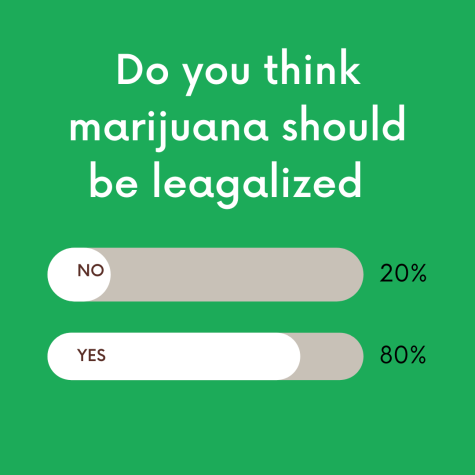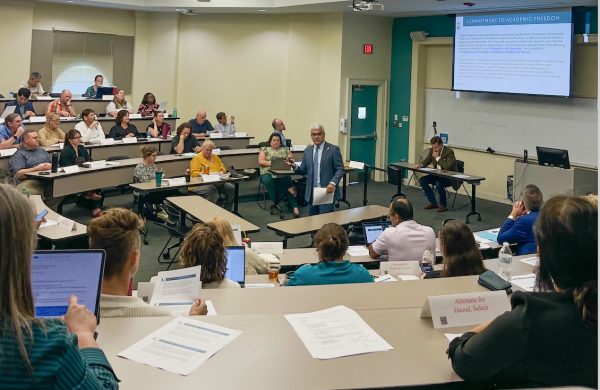The possibility of federally legal marijuana
Marijuana is on its potential journey to be federally legalized and decriminalized due to the current bills being amended in the U.S. House of Representatives and Senate.
The Marijuana Opportunity Reinvestment and Expungement (MORE) Act originated and passed in the House and the Senate is now finalizing its provisions. Although the bill passed this month on April 1, it was introduced back in May 2021.
Some of the main goals of the MORE Act:
- Decriminalizes marijuana and eliminates criminal penalties for those who manufacture, distribute, and possess marijuana
- Removes marijuana from the list of scheduled substances under the Controlled Substances Act
- Replaces statutory references of “marijuana” with “cannabis”
- Imposes a 5% excise tax, which will increase to 8% over three years
Michael Julius, senior CCU lecturer, believes the MORE Act has a low chance of passing in the Senate because they have already drafted their own bill to legalize marijuana. The Cannabis Administration and Opportunity (CAO) Act was also introduced by democrats in the Senate just three months after the MORE Act.
The CAO Act has similar goals to the House bill, such as removing marijuana from the Controlled Substances Act, doing more studies on the societal impacts of legalizing marijuana, and imposing a tax on the sale of pot. The main difference is this bill suggests a 10% tax, which will increase to 25% over a three-year time span. It will federally legalize and decriminalize cannabis, but it will not force states to individually legalize it.
“I think whatever bill does [pass], if the bill does get out of Congress as a whole, I think it’ll be a compromise bill between the two,” Julius said.
Even though the MORE Act may not pass, Julius said he would be surprised if marijuana is not federally legalized within the next decade. He said there is a mix of liberals and conservatives who are for cannabis and have legalized it in their states.
“It’s either legal or it’s not. We’re in a weird Twilight zoning realm where we’re pretending it’s not legal when it clearly is,” Julius said. “We might as well just change the federal law to deal with the situation and make money off it.”
States having their own power to legalize marijuana sparks controversy with the fact that it’s currently federally illegal. Trinity Ghering, junior biochemistry major, doesn’t believe cannabis should be legalized.
“Illicit and addictive drugs have limits on them. They are all illegal. And marijuana has those effects,” Ghering said. “So, if you’re going to legalize one of them, you got to legalize all of them. And that just sounds messy to me.”
On the other hand, Kendal Mackison, freshman sustainability major, doesn’t believe cannabis is addictive. She said she doesn’t see how it could do any more harm than a cigarette, which is legal.
“I know that a lot of the people in prison are there for marijuana possession. There’s just such an inconsistency,” Mackison said.

Phillip Trammel, teaching associate, said there is more addiction and crime linked to legal cannabis than most think. The pot has psychoactive substances in it, which can lead to disorders regarding hallucinations, paranoia, and schizophrenia.
Inside the cannabis are compounds called cannabinoids, which are made up of Cannabidiol (CBD) and Tetrahydrocannabinol (THC). CBD is made naturally in one’s body to calm someone down, whereas THC is what makes one feel high. Trammel said CBD has the power to kill off cancers inside the body.
For marijuana to be considered medical, the strains must be identical in levels of THC. There are many conditions that cannabis can be used to lessen the symptoms and pain, such as cancer, arthritis and nausea. The “munchies” are a key player with marijuana to allow patients to have an appetite and eat.
“I’m not saying it’s any better or any worse, but it seems like the marijuana is helping people just as good, and they’re not becoming addicted to the opiates or later lead to a heroin abuse,” Trammel said.
He mentioned that opiates are the number one killer drug in the United States. Since cannabis has many medical benefits, Trammel said it shouldn’t be ranked with heroin and cocaine.
“I don’t think they need to go to prison. I think they need help,” Trammel said.
Julius agrees in the sense that it is important for the government to separate the drugs that are killing people “left and right” from the drugs we don’t care for.
“We can devote more resources to controlling fentanyl, or controlling heroin, or whatever it is that is actually a problematic substance,” Julius said.
Julius said this debate with legalizing marijuana can be compared to the prohibition of alcohol, since it was a decision highly supported by Americans at the time. We can apply the same ideas to cannabis to experiment with its legalization. Each state may have their own regulations such as legal amounts and age limits.
Trammel highly advises individuals who have substance abuse history in their family to stay away from any drug, including marijuana.




















